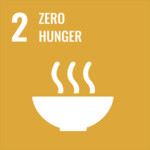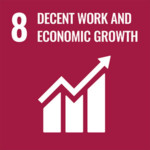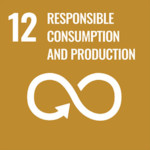
LeguCon
Promoter: Católica University – Porto Regional Centre
Territorial Reach: Northern Portugal
Target Audience: Farmers, producers, agricultural associations/cooperatives, agents of rural development
Duration: 2 years
SDG: 2. Zero hunger, 8. Decent work and economic growth, 12. Responsible consumption and production

The LeguCON project involves the creation of a consortium, the first of its kind in Portugal, to promote legume production in the country.
In a context in which environmental conservation depends directly on the adoption of sustainable practices across all levels of the value chains, there is an urgent need to increase the production and consumption of plant-based protein. The demand for more nutritious and sustainable products has been growing and legumes are foods that offer many health and environmental benefits.
The project includes training on the implementation of a more sustainable agrifood system, based on legume production, for farmers looking to diversity their farms or seeking alternative crops.
More info
Sustainable Development Goals
This project contributes to the following SDG targets:

Target 2.4
By 2030, ensure sustainable food production systems and implement resilient agricultural practices that increase productivity and production, that help maintain ecosystems, that strengthen capacity for adaptation to climate change, extreme weather, drought, flooding and other disasters and that progressively improve land and soil quality

Target 8.2
Achieve higher levels of economic productivity through diversification, technological upgrading and innovation, including through a focus on high-value added and labour-intensive sectors

Target 12.4
Achieve the environmentally sound management of chemicals and all wastes throughout their life cycle, in accordance with agreed international frameworks, and significantly reduce their release to air, water and soil in order to minimize their adverse impacts on human health and the environment..
